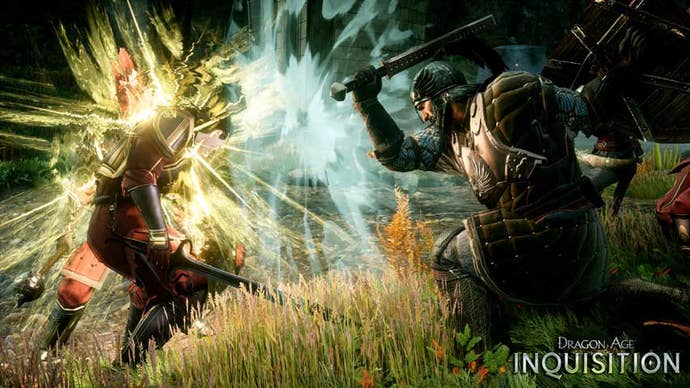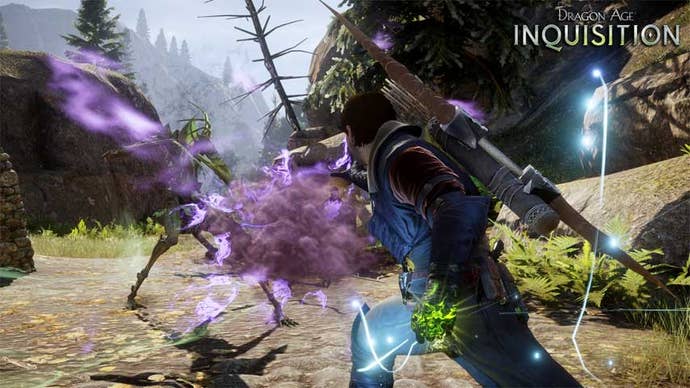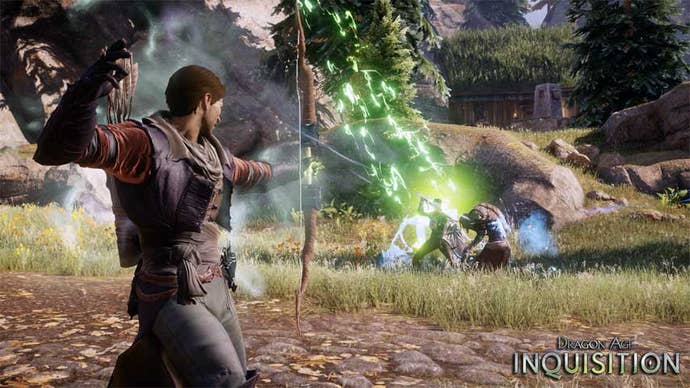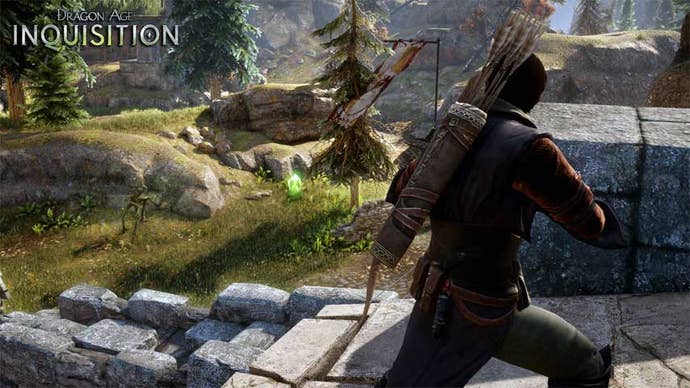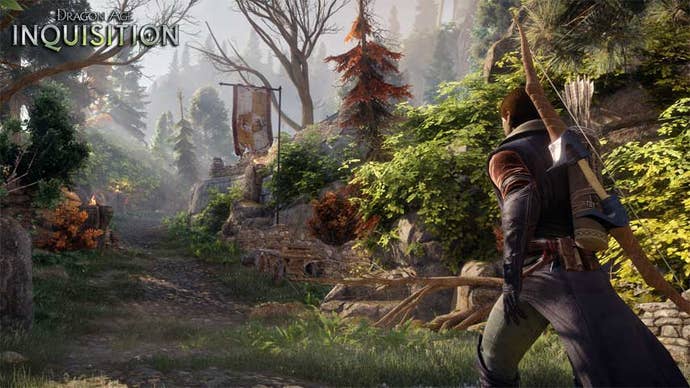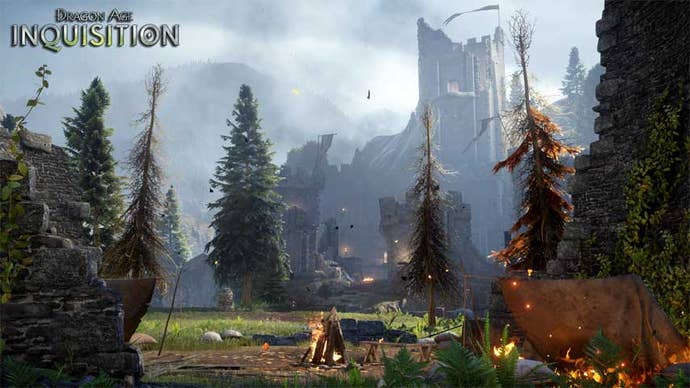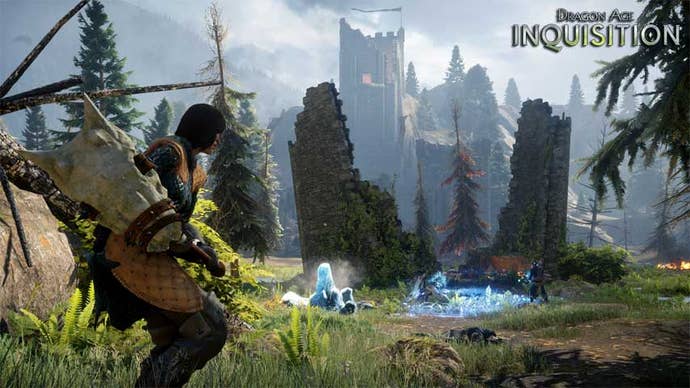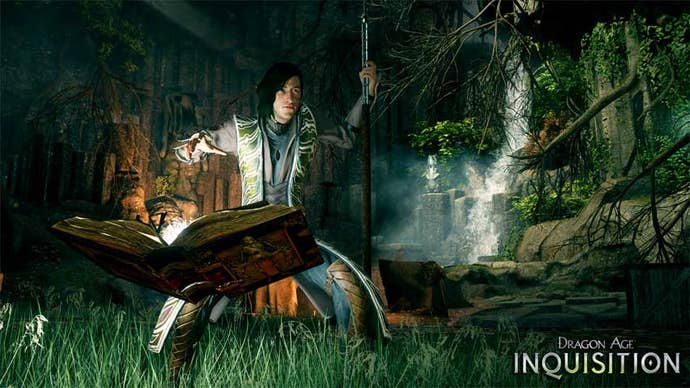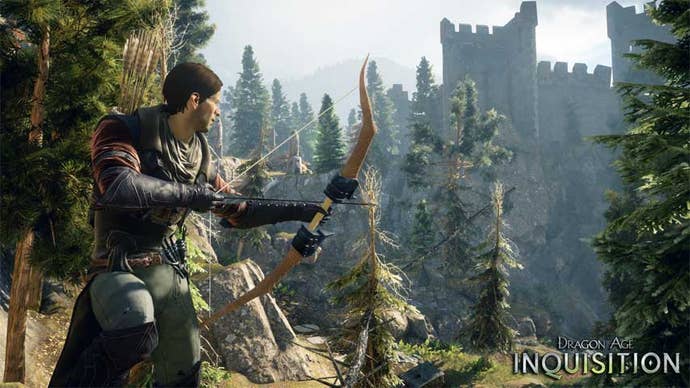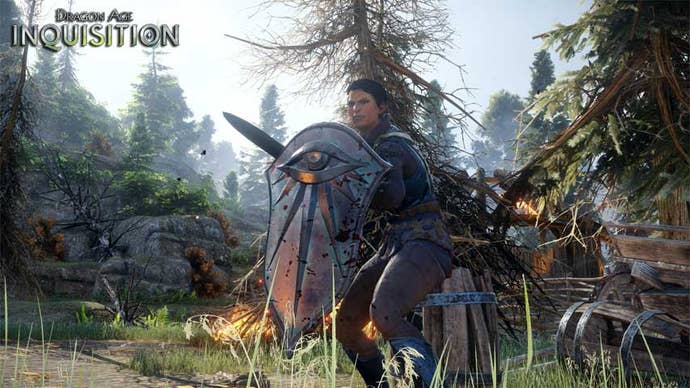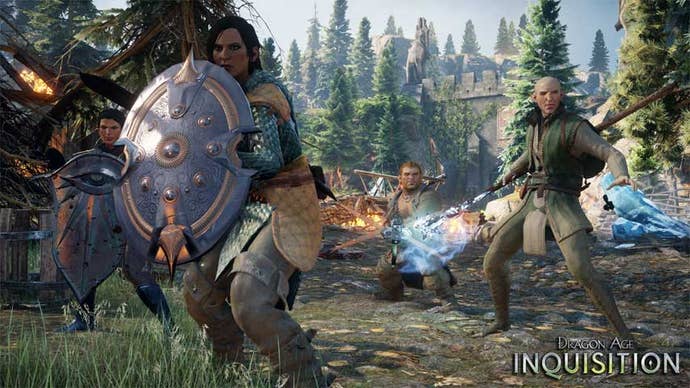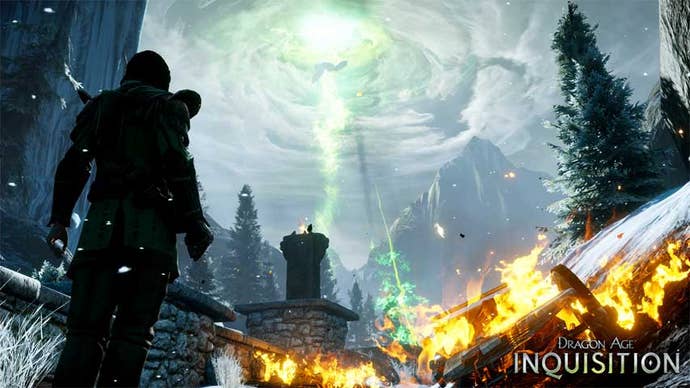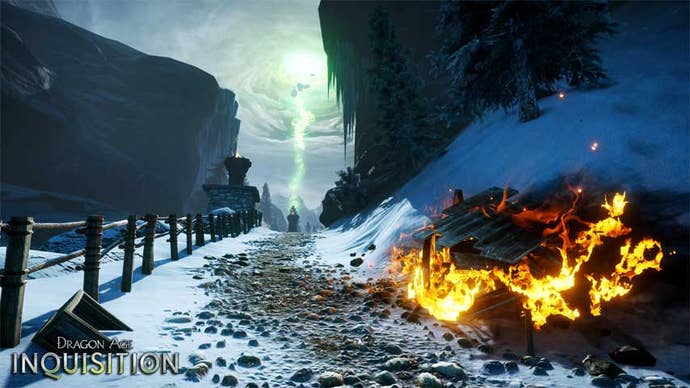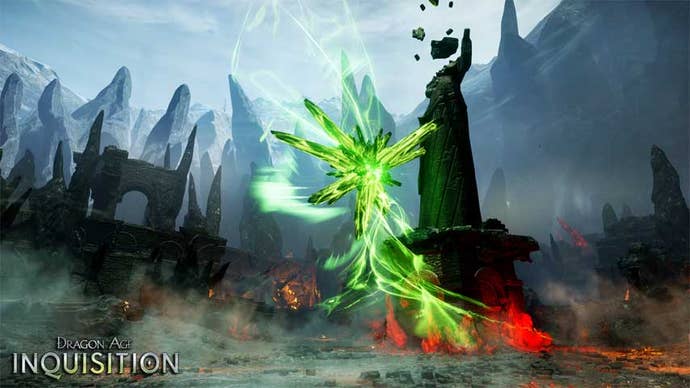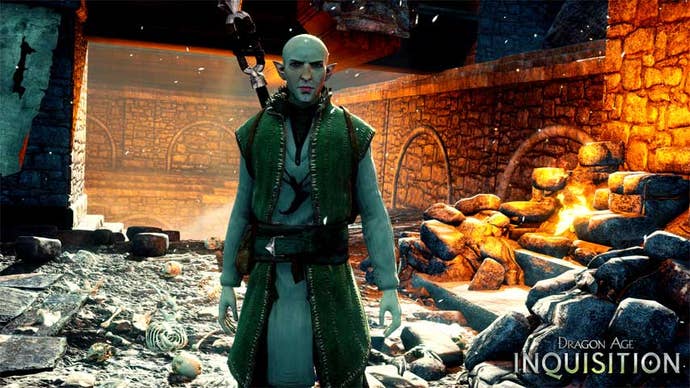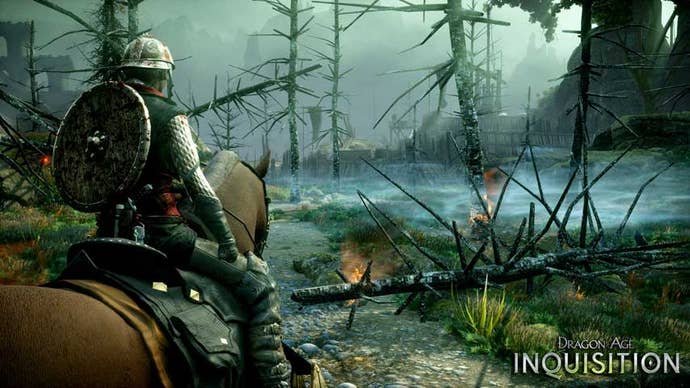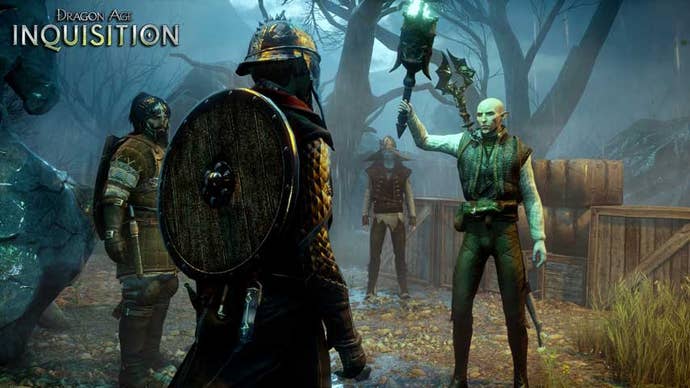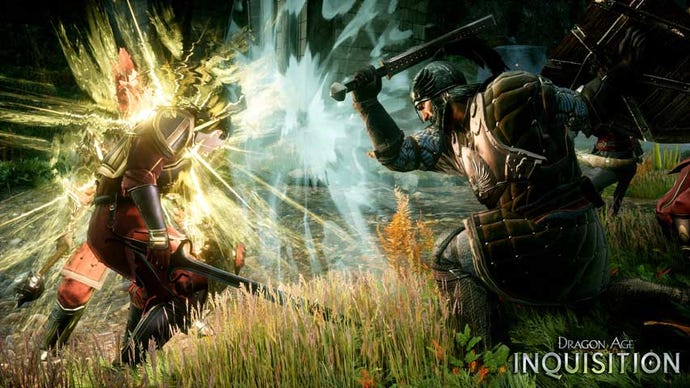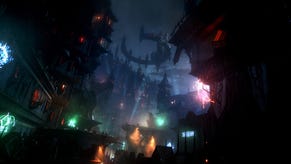Dragon Age: Inquisition - open world, open opportunities
Dragon Age: Inquisition takes the series open world for the first time. That means big changes to the traditional RPG structure of plopping down a stack of main and side quests around hubs.
Dragon Age: Inquisition makes quite a departure from the way content was organised in the first two games, and in most western RPGs. Rather than having players progress in a linear fashion from location to location following the main quest, optionally taking on quests in each area, it presents the player with an open world.
So what's out there in all that landscape? Is it all going to play host to missions required for the main storyline, or is it going to be spangled with optional and therefore skippable content?
"Weirdly both," series lead designer Mike Laidlaw told us.
"What we've done is try to make all the open areas thematically appropriate. None of them are places where there's no reason for the Inquisitor to be there, there's no reason for the Inquisition to be there.
"What I'm hoping is that the side quests still feel tied back to the main story in that completing them is what enables you to go on the big quests. Rather than it just being well, you could do them and you'll get some gold - nah!"
"There's always something going on that at least ties back to what the bad guy's doing, or an opportunity for you to advance your own position. Like, 'hey if we can get into this open tomb we can find the artefact within which would really impress X'. There's always some kind of reason for these places."
It's not just a matter of making optional content feel important; doing side quests has much more consequential outcomes than just giving you a bit of extra spending money or fancy equipment.
"There's a solid theme through it all, which is that the Inquisition is growing, the enemies are being pushed back, you're claiming new territory," Laidlaw said.
"By doing that what I'm hoping is that the side quests still feel tied back to the main story in that by completing them you're growing your Inquisition and then that in turn is what enables you to go on the big [quests]. Like 'okay, now we're gonna lay siege to this fortress' or what have you. Rather than it just being well, you could do them and you'll get some gold - nah! At that point, they feel pretty trivial."
The line between main quest and side content is further blurred by a certain amount of gating. You can't just follow a linear storyline and ignore the world around you, because certain main quests just won't open to an Inquisition with too small a power base at its back.
"If you do the bare minimum, you do still have to engage with some of the exploration content. The exploration content is what empowers you to pursue the core story, right? You can't do only core story. That's one of the fundamental changes is that the exploration content is part of that experience," Laidlaw said.
That doesn't mean you're locked in for that whopping 200 hour figure that's been thrown around, though.
"The exploration content is what empowers you to pursue the core story, right? You can’t do only core story. In terms of if I only want to do the minimum, you can miss a significant portion of the game."
"In terms of if I only want to do the minimum, you can miss a significant portion of the game," Laidlaw said.
"But since you can continue playing even after you've finished - say you've beaten the main chunk of the game. You may decide to go dragon hunting afterwards and so continue to play as your Inquisitor. Obviously certain elements of the plot will shut down because they're no longer appropriate. But once that happens, it's up to you. If you want to go take out that one last dragon or what have you - it's wide open."
In other words: although you'll need to do a certain amount of side questing to finish the main story, what you do to reach those thresholds is up to you, and even if you skip something you'll still have a chance to come back to it.
Everything Laidlaw told me emphasised that Dragon Age: Inquisition is designed to enable players to make a choice as to what kind of experience they'll have. This is becoming a major theme of the RPG genre, with games like Dark Souls offering a huge amount of customisation even within a constrained combat system. Laidlaw said Inquisition won't offer such "extreme" choices as Dark Souls, but you can definitely shape your own approach.
"You can focus on different styles in terms of your abilities," he said.
"The Dark Souls thing is, they go to heavy, heavy extremes in terms of weight and process. You get to the point where you get like Havel's armour and those massive stone swords. Those each are like - gimme a minute, I'll wind this up and swing.
"We don't have that variety necessarily. To me that's a thing that is uniquely Dark Souls - though I haven't played Lords of the Fallen just yet. But we do say look, if you wanna play the heavy hitter two-hander, focus all your power into one attack, that's absolutely possible. It's a combination of what abilities you take, how you craft your weapon, and how you choose to play the character."
The swords are probably a little more modest than some of Dark Souls' whopping weapons, too - but that doesn't mean they're constrained by realistic dimensions. If you're the kind of person who insist on realism in your fantasy games (??) then yes, those swords that are too big to realistically draw over the shoulder are probably going to bother you.
"The swords themselves are part of an overall art style. They're built to match a certain size so that they work and they represent a certain area when you're swinging for collision. So that size needs to be balanced for gameplay," Laidlaw said.
"Sometimes that will cause a little bend in whether that's absolutely plausible and you know, hey man? Video games. That's my response there.
"It's about playability, right? If it were raw realism there probably wouldn't be very much magic either. At some point you have to decide do you want to be slavishly realistic and a simulator, or do you want to be an experience?
"We tend to lean towards experience where possible. Simulation games are valuable, and I'm not saying simulation games are bad by any means, but when you're building, these are design choices you have to make."
Thanks to everyone who volunteered questions on Twitter. Dragon Age: Inquisition is coming to PC, PlayStation 3, PS4, Xbox 360 and Xbox One on November 18 in North America and November 21 in Europe and beyond.
